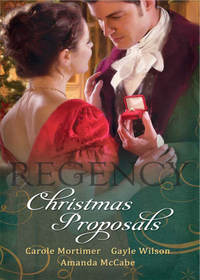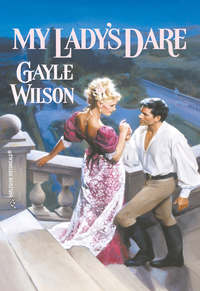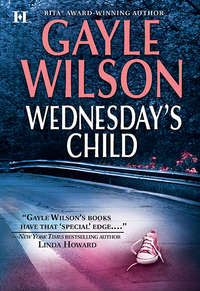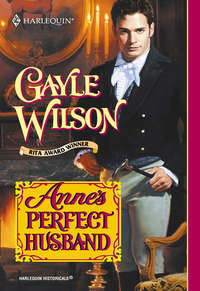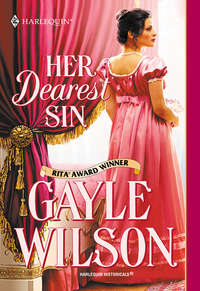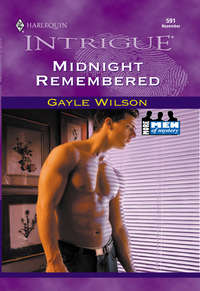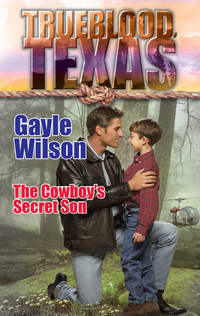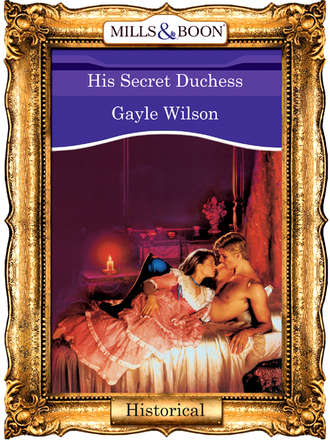
Полная версия
His Secret Duchess
“I think it’s time for tea,” Mary said, making her voice strong and pleasant “Are you hungry?” She waited, unsmiling, her eyes on the downcast head until finally he nodded. “Good,” she said, rising. “So am L I think that as a treat we shall have currant scones and cream.”
The childish fingers brushed again along the wooden figure. The light from the fire played over the boy’s curls, touching them with the same gold the painted soldier wore so proudly.
It was long after dark when the master of the house returned. Mary had forced herself to wait up, keeping the fire in the parlor alive and the lamps lit. Unkindness was not in her nature, and no traveler should be forced to return to a cold, dark house in the dead of a winter’s night. She had no wish to see him, no wish to greet the man whose arrivals she had grown to dread more and more with each passing week.
Marcus Traywick was a merchant, successful, certainly, by the standards of the district in which his sturdy brick house stood. He had ordered the dwelling built to his own specifications, untrusting of the architect he had sent to London for. There was, therefore, nothing of the aesthetic about the structure, but simply the same stolidness and lack of imagination that colored the character of the man whose home it was.
It was Mary who unlatched the heavy oak door and let him in. No other servant slept within the house. Traywick employed a man to tend to the coarser tasks demanded by the household, a grizzled veteran whose military service had returned him to the village missing an arm and who was pathetically grateful for the job.
Mary suspected Bob Smithers’s employment was the result of neither kindness nor patriotism on the part of her employer, but rather the realization that given the exsoldier’s impairment, the merchant could more easily justify the pittance he paid him. All other tasks fell to Mary Winters, who did them willingly, grateful still.
“A cold night, Mary,” Traywick said, brushing the snow off the top of his beaver, letting it fall to puddle on the gleaming boards of his entry hall. “It’s not fit out for man nor beast.”
Mary made no response as she helped him out of the greatcoat and hung it to dry on the hall stand. She had found in the long years she had spent here that there was no need for an answer. The merchant expected none, and if one made a response to the familiar comments, which were always the same or were said with some slight variation, it disturbed the even tenor of the homecoming. So she was silent, respecting what she had come to understand was merely ritual.
Divested of his outer garments, Traywick crossed the hall to the parlor and the warmth of its welcoming fire. Mary waited, watching from the doorway as he spread his broad hands before the cheerful blaze, their chilblained redness visible even in the shadowed room. He never wore gloves, often mocking the virility of those who did. “Simpering fops” was his most frequent sobriquet.
Although she never responded to his comments or made her own, Mary had come, through the years she worked for Traywick, to despise the vulgar coarseness of his hands. She had at first prayed for forgiveness for whatever was in her nature that would allow her to feel about his hands as she did.
Now she no longer bothered to seek divine intervention for this evidence of her ingratitude. She tried to ignore the feelings those rough, cracked fingers created in her mind, but sometimes she dreamed of his hands, seeing them in her nightmares as separate from the man himself, having their own almost animalistic life.
Clearing that ridiculous childishness from her mind, Mary waited until he had turned from the fire to face her before she asked, “Is there anything I can get for you, Mr. Traywick, before I retire?”
Often it was bread and a piece of cheese, some nights a glass of the strong port he kept in the decanter on the sideboard. Sometimes he dismissed her, and she was always thankful for those rare occasions, grateful to escape.
“Nothing, thank you, Mary.”
She had already turned to go when he added the rest, and she felt the tight bud of the fear she had fought during the three weeks he was away blossom sickeningly in her stomach.
“Except your answer to the question I told you must now be considered,” he said.
She hesitated a moment, seeking control, before turning back to face the man standing before the fire. This was a discussion they had had with increasing frequency during the past two months. Always her response had been the same. And always he had pretended to believe she simply needed time to better think through the proposal he was making.
“I cannot wed you, Mr. Traywick. I thought you understood.”
“You are living in my home, Mary. Already there’s talk about the unseemliness of our situation.”
“There will always be those willing to gossip. And those willing to listen. I have lived in your home, sir, for more than six years. I am your son’s governess.”
“Indeed you are,” Marcus Traywick said, his thick lips moving, almost in a sneer. “However,” he continued smoothly, controlling his amusement at her argument, “until two months ago, my wife was also living in this household. There was then no reason for tongues to wag. The situation has changed. Surely you understand that.”
Mary Winters had held the fragile, reedlike body of Abigail Traywick as she breathed her last, her health stolen first by the too-frequent miscarriages and then by the illness whose evidence had grown large and mocking in her womb, a malignant growth rather than the child she had so fervently pined for, a growth whose only outcome could be death.
Long an invalid, unable at the end even to leave her bed, Abigail Traywick had died as she had lived these last years, with only the company of Mary Winters and the small fairhaired boy who sat contentedly for hours on the bright coverlet of her bed.
The laughing conversations of the three had been almost a conspiracy, quickly hidden when Mr. Traywick returned from one of his frequent business expeditions into the outside world. At those times, Mary and the boy had sought the dim, fire-warmed isolation of her small room, removed from the sounds that always accompanied the master’s return.
‘’I need a wife, Mary. The boy needs a mother. It is up to you if you wish to be the one to fulfill those roles.”
He wanted someone who would satisfy his carnal needs. Not just someone, she acknowledged. He wanted her, and she had been made aware of that for a long time. He had made the first approaches even before his wife’s death. The unwanted brush of his hand against her arm or her hip. The sly, inviting smile. The slide of his eyes across her body.
Not that he had stopped his conjugal visits to Abigail, not even when her body was so wasted that it made almost no disturbance of the bed’s smooth coverings, except for the grotesque swelling of the tumor in her belly. Mary knew the reality of his continued visits too well, having seen the evidence of his passions clearly revealed in the dark bruises on the dying body of the woman she cared for, gently bathing the thin limbs and dressing her, at her instruction, in a pretty nightgown, pitifully awaiting her husband’s expected return.
When Mary finally found the courage to ask, Abigail’s eyes had not met hers.
“Because he’s my husband,” she had said softly. “It’s my duty. I cannot deny him, Mary. It is his right. “
Mary Winters had nodded, placing the skeletonlike arm tenderly under the warmth of the quilts that she piled around the dying woman.
“There are others, Mary, more than willing,” Traywick reminded, pulling her thoughts back to the present, to the question for which she could not imagine an answer.
She knew the truth of what he said. He was rich, prominent in the affairs of the district, tall and stout, his thick body taken as a sure sign of his prosperity. It would be thought that spinster Mary Winters had made a match far above her expectations. Tray wick’s florid complexion and the slightly protruding, mud-colored eyes were not flaws serious enough to put off the women who would be more than willing to take over the running of this house Mary had entered more than six years ago.
In those years, the reins of its management had slipped slowly and yet inexorably from Abigail Traywick’s fragile fingers into Mary’s capable ones. She could not imagine anyone else living here.
Nor could she imagine sharing the upbringing of the boy with another woman. Certainly it would not be with the instantaneous, sisterlike rapport she had found with Abigail.
“You may go or stay. That is your decision, Mary,” Traywick went on. “Your right. But if you choose to stay, it must be, given the change in our circumstances, as my wife.”
“Go?” she repeated unbelievingly. Surely he couldn’t mean—
“I don’t think another woman will be willing to share the management of the household with you, as Abigail was. Her health, you know, almost forced that surrender of her duties, but another woman.”
He let the sentence trail off, its implications clear. Another woman would perhaps demand sole control. Not only of the house, a task she would gladly surrender, but also of the child.
“What of Richard?” she asked. The central question, of course. She watched his thick lips move again into that knowing smile.
“There is Richard, of course. Did you think I had forgotten Richard, Mary?”
“Even if you remarry, sir, he shall still need a governess. A new wife might not be so willing to take on the raising of a child from a previous marriage.”
“Especially if she has sons of her own,” he suggested.
The idea was one that she had not considered. How stupid she had been that the realization of what he really wanted did not cross her mind. She had done everything he demanded. All these years, knowing that she was entirely at his mercy, but knowing also, in her heart, that Abigail Traywick’s body would never produce the son her husband’s vanity demanded.
They had been married five years before Mary came to live here. Even then, there had been eight small markers in the churchyard of the village, all the stones bearing the name of Traywick. A few of the babes had been stillborn, carried long enough for hope, she imagined, to flourish in Abigail’s breast that this time, this time at last, she might produce the son her husband wanted so desperately. And his obsessive desire for a son to carry on his name had been Mary’s protection.
“Besides,” he went on, “Richard is old enough to be sent away to school.”
“He’s still a baby,” Mary argued, but suddenly she knew what he intended: to ease aside the child he had been so willing to claim as his own six years ago, and to put into his place a son of his own loins—now that the convenient death of his barren wife had freed him to marry again. She could be his new wife and could bear the sons he wanted, sons of his own seed. In that position, she would be able to care for and protect Richard. Otherwise…
“Your decision, Mary. Shall you become my wife and continue here in the household you have surely come to think of as your own? To care for Richard as if he were your own son…”
Again he allowed the sarcastic suggestion to fade away. There was no reason to voice the truth. They both were aware of it. She had given him her son, and in exchange she had been allowed to live in this house, to care for the baby and for the woman who willingly pretended she had finally carried a living child within her womb, carried it this time to term.
There had been nothing but a strong mother’s love evidenced for the baby by Abigail Traywick, but her spirit was generous enough to share “her” son with the slender, too-quiet girl who had come to live in her home and who had come, also, eventually, to be her friend.
“You know I can’t leave Richard,” Mary said.
“Then the decision seems simple. You will find me an indulgent husband, Mary. Abigail wanted for nothing. You must be the first to admit to that.”
Still she hesitated, remembering the bruises, and the noise that had sometimes reached even to the sanctuary of her room. Involuntarily she shuddered, but then she wondered why she hesitated. She had already given up so much. There would be the physical surrender, and no matter the painful reality of that, she would willingly sacrifice whatever discomfort it involved to protect the child. She could close her mind to the reality of his body straining above hers in the darkness.
With that thought came the memory of the clearing, and the strong, young body of the man she had loved. So long ago. And of the shadowed chapel where she had spoken vows that bound her then and had bound her since.
“I cannot,” she whispered.
His hand, the fingers broad and spatulate, was suddenly against her cheek. His palm was smooth, softer than her own hands now were, hard worked with the many tasks of’ the household. She had not felt she had any right to complain. There had never been bitterness in her heart about her role, only gratitude that she and the boy were warmly dressed, sheltered from the cold cut of both winter wind and cruel gossip, and well fed. He had never begrudged their care. Despite his cruelty, he, too, it seemed, kept to his bargains.
“You think about it, Mary,” he suggested, his fingers sliding slowly over the smooth white skin of her neck, coming to rest over her shoulder, his thumb making caressing movements just over the swell of her breast.
She could not prevent her shiver, and again his lips lifted into that suggestive smile. “Think very carefully about what you want. And about what you are willing to give up. I think Richard would have à hard time adjusting to the rough-and-tumble of school. So many do, you know. I even heard of a child who hanged himself. Too sensitive, they said, but if Richard had brothers… Perhaps a tutor might be the solution, if there were other children.”
Mary said nothing, her eyes held with deliberate courage on his, unprotesting of his hand’s caress. He smiled again, at whatever was revealed in her rigid features.
“Be sure you bank the fire, Mary.” he said. His hand squeezed her shoulder, the pressure painful with the brute strength of his fingers. He stepped beyond her, stopping only to pick up the crystal decanter of port. Unmoving, she listened to his footsteps fade down the hall, to the room he had shared with Abigail.
Only when she heard the door close did she allow her body to sag, almost gasping for air as would an exhausted runner. She moved slowly to the fire, but instead of tending to the task he had assigned, she watched the golden flames blur and disappear behind her tears. She blinked, determined to clear the unfamiliar moisture.
Her hand trembled like an old woman’s when she put it against the small mantel. Suddenly, though she had never wavered in the path she had chosen, or been forced by fate to choose, her proud head bent, her forehead allowed to rest against the back of the hand that gripped the narrow mantel.
Her father had often promised that one was never given more than there was courage to bear, but for the first time Mary Winters wondered if the strength of her resolve and the level of her endurance would suffice.
The cold disturbed her, so she turned, trying to find the familiar warmth of the piled quilts. The fire must have gone out, she thought drowsily, her fingers searching for the bedclothes that somehow had become so disarranged as to leave her shivering, uncovered to the winter’s draft.
She was not yet awake, so when her fingers encountered the unexpected solidness of a body above her, she screamed.
She was dreaming, she thought. Only a nightmare. Like Traywick’s hands, huge red spiders fluttering over her body in the darkness. And then his hand moved upward, pushing against the bunched material of her cotton rail, thrusting his knee between the two of hers, his hand under her gown, cold against the bed-warmed skin of her thigh. She was awake now, awake enough to think that she must not scream again. It would frighten Richard, sleeping in the nursery next door.
“No,” she said, pushing downward against those blunt fingers with both her hands. She held her knees together, one pressed tightly on either side of his, but then she could do nothing about his mouth, descending over her breast. His lips fastened over her nipple and, reacting to that invasion, she turned her body, fighting against his massiveness, against his sheer bulk. She felt his mouth lose contact, and the hope that small victory gave her added strength to her will. He must not, she thought. He must not.
With his free hand, he caught her wrists and wrenched them above her head. The hand that was under her gown, tracing coldly over her thigh, continued inexorably to its destination.
“No,” she said again.
“Hush, Mary,” he whispered, his lips on her cheek. She could smell the sweet-sick odor of the wine on his breath, hot and fetid against her skin.
“No,” she begged, her slender body bucking under his weight, trying to push him off.
“You’ll wake the child,” he warned hoarsely. His mouth found hers, and he pushed his tongue inside, the soured taste of wine sickening. His tongue was too large, too strong, like the body that strained above her. It was choking her. Moving inside as the spider hand was moving now against her lower body, his fingers painfully digging into the soft flesh of her thighs. Not a caress, but a punishment. And she thought of the bruises that had always marked Abigail’s frail body.
Unbidden and unwanted, as weakening as the realization of how little control she had over what was happening, came the image of Nick Stanton’s fingers drifting with sensuous grace across her body. This was not love making. This was assault, and Mary knew suddenly that if she agreed to what he urged, no matter whether anyone else ever knew, she, at least, would always know the desecration of those vows she had made. Till death us do part…
She bit the tongue that pushed vilely against hers, bit hard and tasted his blood, and felt the bile rise in her throat as the blessed air rushed in where there had been only the hot stench of his breath.
“No,” she said aloud. Fighting more strongly, determined now that he should not take what was not his. “Get off,” she ordered. Her right wrist suddenly came free from his hold, the pain of her teeth perhaps having surprised him enough that he loosened his grip. She put her palm flat against his chest and pushed, and then her legs came up, knees struggling to get under his weight, trying to throw him off her.
The blow that smashed against her mouth and nose was casual, not delivered in anger, but as unthinking as if one were swatting at a summer’s fly, brushing aside something that dared to annoy. His strength was enough, however, that her face went numb with the force of it, and she tasted blood again, her own, her lips cut against her teeth. There was no pain, not yet, only shock, and unthinkingly she cried out. She had never been hit in her life, not even as a child. The unexpectedness of it was more painful than the physical force.
Neither was aware of the opening door.
“What are you doing to Mary?” Richard’s treble piped from the doorway.
Mary felt the momentary hesitation in Tray wick’s hands. He lifted away from her chest, turning to look over his shoulder in automatic response to the boy’s presence.
Would he hurt the child? she wondered, and the hated image of the descending cane came into her mind. Panic made her strong, and some primitive instinct for survival taught her what to do. She raised her legs, their slender whiteness a flash of motion in the darkness of the bedroom. Her bare feet made contact with his body, and she kicked with all her strength, somehow throwing his huge body off hers.
Traywick had not been expecting it, but he was more agile that his bulk suggested, and somehow he managed to land on his feet. He was off balance, however, and he took several staggering steps backward in a futile effort to right himself.
They watched, child and woman, as almost in slow motion Traywick began to tumble backward, toward the small light of the nighttime fire, carefully banked before Mary had lain down to sleep. His head cracked with a force that was audible against the edge of the mantel and then Marcus Traywick fell, the back of his skull landing hard again on the stones of the hearth.
His head bounced with the force of the blow so that, unconscious now, he came to rest with his cheek against the black metal of the andiron that held the banked fire. The scent of singed hair and the sickening aroma of burning flesh pervaded the tiny chamber.
Mary was stunned by the unexpectedness of his stillness, and then she realized what the smell meant. She jumped up from the disordered bed and rushed to kneel beside the man who lay unmoving on the hearth. She grasped his hair, pulling his face away from its contact with the searing metal. She found she was panting with the exertion of the fight.
The only thought that moved through her brain was that she had done murder. She had killed a man. Not just any man, but one who had given her and her child refuge through these years. On her knees, her slight body swaying over the massive one of Marcus Traywick, the smell of his burning skin and hair filling the cold, still dimness of the room, she felt her son’s hand on her shoulder.
“Is he dead?” the boy asked.
“I don’t know,’ she whispered, wondering what she could say, how she could ever explain away what he had seen.
“I shall hit him if he’s not,” Richard said fiercely, and, glancing up for the first time, she saw that he was standing beside her, his small fingers fastened with his father’s strength around the handle of the nursery poker. “I shall kill him for hurting you.”
Her throat closed with the force of her love, and both arms enclosed around the small warrior standing beside her.
“No,” she said, her mouth moving against the fair curls, touched with gold by the flickering light of the flames. “It’s wrong to kill someone, wrong even to wish someone dead,” she breathed.
This was her punishment, she knew. For her pride. She had wanted Marcus Traywick dead, and now she had made it happen. The price for her sin. Perhaps for all her sins, she thought, hugging Richard more closely to her. She wondered how much more she would be called upon to pay.
Chapter Two
The Duke of Vail’s long fingers lay relaxed against the smooth surface of the gaming table. Despite the amount of the wager involved, his demeanor was one of polite disinterest as the points were totaled. Most of the other patrons of White’s had quickly abandoned their own pursuits this evening in order to watch the high-stakes game His Grace was engaged in winning.
The gentlemen assembled around his table were all aristocratic and wealthy, but not nearly so much so as the man whose presence had attracted so much attention tonight, even among this elegant throng. Although long a member, by virtue of birth and reputation, of the foremost gentlemen’s club in the capital, the reclusive Vail did not often come to London now, and when he did, it was certainly not to participate in the games of chance to which the members of the ton were addicted.
No one was sure why the duke had come tonight, or why he had agreed, when invited, to take a hand, but the event was unusual enough that those who watched knew they would be able to dine out on the story for weeks to come. They could not know, of course, that they were about to be provided with a far juicier bit of gossip than they had any right to expect.
“That’s sixty points and the hand,” the Viscount Salisbury said, the words forced through lips suddenly gone numb with the realization of the sum he had just lost. He could imagine his father’s reaction. A season’s rustication, at the very least.
“My game, as well, I believe,” Vail said. His face was carefully expressionless, but there was a glimmer of sympathy in his gray eyes. He was well aware of the situation of the young Corinthian whose pockets he had just emptied. There was the fleeting thought that he might return the winnings he certainly didn’t need to the man seated across from him, but he knew that, given the constraints of their society, the attempt to do that would be far more humiliating to the young nobleman than the loss itself had been.



